Rogue landlords: What is it like to live in a substandard home?
- Published
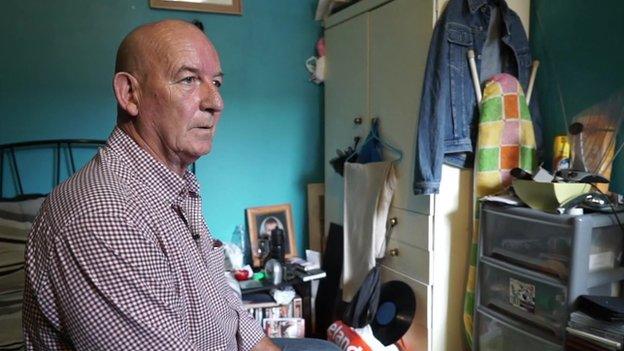
Ron Bower has recently suffered heart attacks and feels trapped in inadequate housing
Unscrupulous landlords are providing vulnerable tenants with substandard housing, and getting away with it, according to experts who are demanding that minimum standards be enforced to drive rogue landlords out of the market.
The Chartered Institute of Housing - which represents housing professionals - and the Resolution Foundation - which campaigns for better living standards for people on low and modest incomes - say in a joint report that the rapid increase in property prices has left more people relying on private landlords.
The report says that one in three privately rented properties fails to meet the government's standards for a "decent" home - but what is like for those tenants who find themselves living in such a place.
Ron Bower, who is in his 60s and has recently suffered heart attacks and a mini-stroke, feels trapped in inadequate housing.
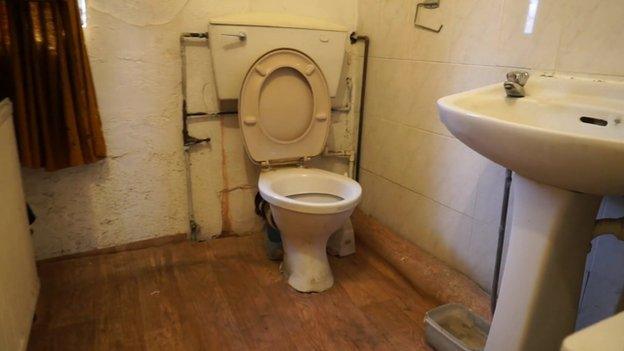
Greed drives some landlords to provide poor housing, says Ian Dick, of Newham Council's housing department,
He is one of six adults sharing what would originally have been a two-bedroomed house in east London.
The house, condemned by the local council as "insanitary and unsafe", has been infested with mice, cockroaches and bed bugs.
"It's a terrible place to live," says Mr Bower, "It's shabby, it's dirty, it's too small. If you're number six waiting to get into the bathroom… you can imagine."
Minimum standards
He looks round the bedsit that contains all his possessions - with its fridge in the corner, oxygen mask by the bed and plastic bag of medicines on the window sill.
"You are stuck in your room, it's like a prison cell", he says, "but I couldn't ever invite anyone round. It's embarrassing."
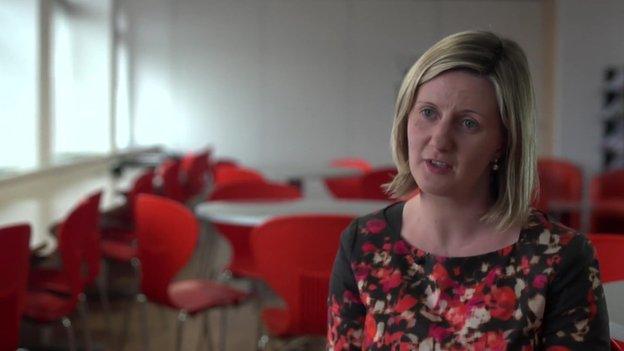
Grainia Long, chief executive of the Chartered Institute of Housing, wants landlords to meet their obligations
The report calls for the creation of a single, easily understood, set of statutory minimum standards that landlords have to meet, and sufficient resources for enforcing them.
Grainia Long, the chief executive of the Chartered Institute of Housing, says: "These are people's homes we're talking about. I want to see a situation where all landlords understand their obligations, meet their obligations, and are committed to professional standards."
Mr Bower is among those vulnerable tenants the Chartered Institute of Housing and the Resolution Foundation want to help.
Fees
He lost his job as a lorry driver when he had a heart attack, and has little money to spare for rent.
He describes being in the house as "existing" rather than "living".
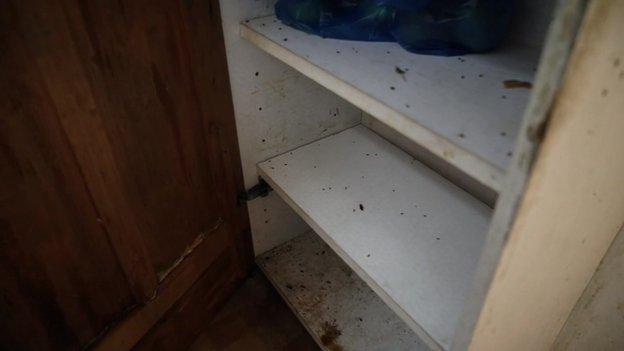
Newham has prosecuted 500 landlords who flout health and safety standards in 18 months
"I can't get a deposit together [for a house] to move out so I've got to stay here," he says. "I don't want to, but what can I do?"
People often have to find a significant sum to get tenancies in decent accommodation - to pay the fees charged by some letting agents.
The report calls for letting agents to be regulated in the same way as estate agents are, and for an end to the practice of charging fees to tenants.
'No alternative'
Newham Council, in whose area Mr Bower lives, has pioneered a system of compulsory registration of landlords, partly so it can track down those properties it describes as "slums".
Ian Dick, of the council's housing department, says for many tenants there is a stark choice - between very poor housing or life on the streets.
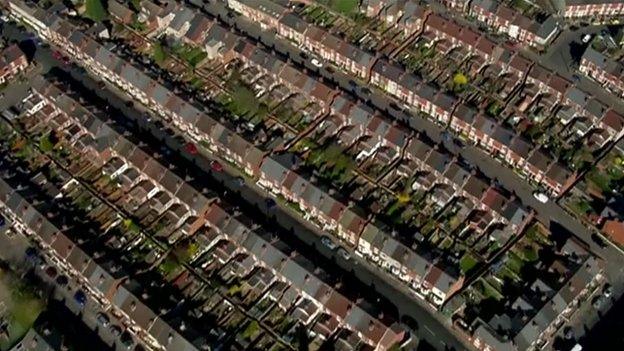
Landlords should be rewarded for improving properties, suggests the report
"We have a big problem with homelessness," he says. "Therefore tenants are forced into living in this kind of poor quality housing. They don't have any alternative."
Newham has prosecuted 500 landlords, tackling those who flout health and safety standards, in the past 18 months.
"Put simply, it's greed and exploitation. Landlords are making a killing without doing anything for tenants," says Mr Dick.
Tax relief
But as well as acting against exploitative landlords who let their properties deteriorate, the Chartered Institute of Housing and the Resolution Foundation want new incentives to others to improve the accommodation they're offering.
Landlords can currently claim tax relief on the money they spend repairing and maintaining their houses and flats - the report suggests that landlords who join a recognised accreditation scheme should get similar concessions for making some physical improvements to them.
Richard Blanco, of the National Landlords' Association, welcomed the proposal.
"Landlords run businesses and anything that encourages us to reinvest our profits or improve our properties is to be welcomed."
Mr Blanco said the association would also welcome a hard line against exploitative landlords.
"Rogue landlords ruin our reputation, and we want to drive them out," he says.
- Published22 July 2014
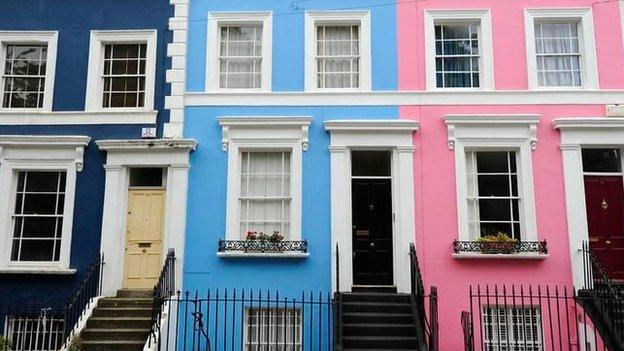
- Published23 July 2014

- Published25 August 2014
